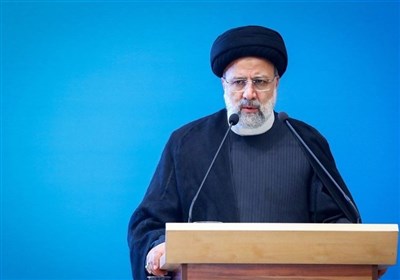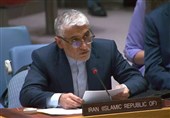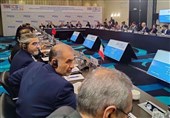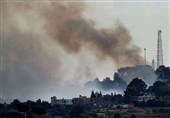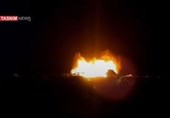Commander Highlights Spread of Iran’s Islamic Revolution Discourse
TEHRAN (Tasnim) – The spokesman for the Islamic Revolution Guards Corps (IRGC) underlined Iran’s major role in the development of the Resistance Front and said the country has been able to export the 1979 Islamic Revolution’s discourse to regional nations.
In a speech in the southern city of Kerman on Monday, General Ramezan Sharif said before the era of the Islamic Revolution, the world was dominated by two discourses, namely communism and capitalism.
He added that the Islamic Revolution created a third discourse that permeated other countries and nations.
Today, the influence of the revolution’s discourse can be seen in the Resistance Front in regional countries, the top commander went on to say.
Elsewhere in his remarks, General Sharif pointed to Leader of the Islamic Revolution Ayatollah Seyed Ali Khamenei’s strategic statement on the second phase of the Islamic Revolution and said the Leader has planned the future of the revolution based on the experiences gained over the past 40 years.
In February, Ayatollah Khamenei issued a statement to explicate the achievements of the Islamic Revolution in the past four decades and outline the “second phase of the revolution” and its necessities.
In the major statement, released on February 13 on the occasion of the beginning of the fifth decade of the Islamic Revolution, the Leader thanked the Iranian nation for magnificent presence in the countrywide demonstrations in celebration of the 40th anniversary of victory of the revolution.
In the statement, addressing the younger generation, the Leader explicated the glorious achievements of the Islamic Republic over the past forty years, highlighted the realistic hope for the future and the role of the youth in making great strides towards the aspirations, and outlined the necessary elements for such a great move in 7 chapters.


